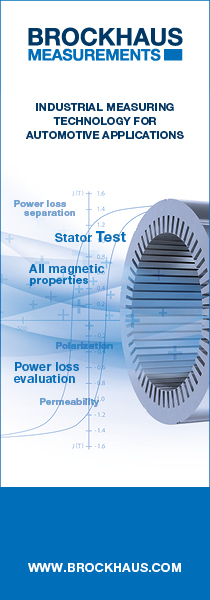Updated 13/01/20
The space sector is a rapidly growing market with unique requirements for high-quality manufacturing and magnetic measurements.
This seminar will focus on magnetic challenges and considerations in the design and manufacture of spacecraft, as well as the role of magnetics in space applications and missions. Speakers from industry and academia will cover subjects including magnetic cleanliness, attitude control and propulsion systems, in addition to talks on magnetic aspects of the JUICE, SWARM and Solar Orbiter missions.
The programme is being developed, and there’ll be more details as they’re finalised.
Chairs
- Dr Graeme Finch, NPL
- Dr Ellie Galanis, Paragraf Ltd
- Mr Olivier Masseglia, Bartington Instruments Ltd
VENUE
The whole event is taking place at the Satellite Applications Catapult, Electron Building, Fermi Avenue, Harwell Campus, Didcot, Oxfordshire, OX11 0QR, UK
ACCOMMODATION
We would like to suggest the following two hotels which are within 3km of the Catapult Building:
Milton Hill House (De Vere) Milton Hill, Steventon, Abingdon, Oxfordshire, OX13 6AF
+44(0)0844 9802314 / miltonhill@deverevenues.co.uk / www.deverevenues.co.uk
Courtyard by Marriott Oxford South 6 Milton Gate Milton Park, Abingdon, OX14 4FP
+ 44 (0)1865 671480 / www.marriott.com
DIRECTIONS AND PARKING
The following link will provide you with directions by road to Harwell Campus https://sa.catapult.org.uk/contact-us/how-to-find-us/ There are 2 maps for parking on Campus, also under the Satellite Applications Catapult Car Parks map (beige coloured map) there is another more detailed map of Campus parking. To note that the car parks are approximately a 15 minute walk from the venue. This link will also provide you with transport links.
DRESS CODE
The dress code for the event is business attire / smart casual.
CONTINUING CONTACT / GDPR
Please note, by providing contact details during registration, you authorise us to
- use these contact details to let you know details of this event, and
- add your contact details to our contact database to let you know about future events that may be of interest.
Please let us know at enquiries@ukmagsoc.org at any time if you do not wish to be contacted in this way. Also, we can remove you from our contact schedule at any point in the future.
SPONSORS
Ferrite Level

Solar Orbiter: Magnetic Control & Verification
by Max Pudney of Airbus
Solar Orbiter is an ESA mission to investigate how the Sun creates and controls the heliosphere. It will travel within the orbit of Mercury and take pictures of the Sun closer than ever before, including over polar regions. The magnetic field is critical to how the Sun controls the heliosphere, and measurements provide imperative data that allows particle measurements at the spacecraft location to be linked to events seen on the Solar surface, helping to answer key outstanding questions. To ensure the spacecraft itself does not interfere with these measurements, a magnetic cleanliness programme was followed on Solar Orbiter. This talk will discuss some of the design choices, controls during integration, analysis and verification performed to ensure the magnetic measurements are capturing what’s happening in space and not what’s happening on the spacecraft!
You must be a member to download papers. Membership Information...
AC Magnetic Field Verification Methods Used in Space Applications and Missions
by Christian Trenkel & Dongsheng Zhao of Airbus & ESA
A new method for the verification of AC magnetic field requirements has recently been developed. In the first part of the talk, the fundamental theoretical principles underlying the new method will be presented, together with a description of how these principles have been applied to the design of the new method. In the second part of the talk, the complete setup including the hardware, the software and the test procedure are presented. The data post-processing is explained, and special attention is given to the good practice that ensures a good measurement.
You must be a member to download papers. Membership Information...
You must be a member to download papers. Membership Information...
| Time | Session Title | Session Host |
|---|
| 09:00 | Registration opens | |
| 09:45 | Welcome | |
| 10:00 | The Use of Magnets in Ion Thrusters for the Coming Mega Satellite Constellations | Charlie Ryan, University of Southampton |
| 10:30 | Frenetic Magnetic – Examples of Magnetic Fields in Space! | Barry Kellett, RAL Space |
| 11:00 | Coffee | |
| 11:30 | Solar Orbiter: Magnetic Control & Verification | Max Pudney, Airbus |
| 12:00 | Government support for innovation and R&D in the space sector | Andy Bennett, Knowledge Transfer Network |
| 12:30 | Lunch | |
| 13:30 | The SWARM Mission | Jose Merayo, DTU Space |
| 14:00 | Design Drivers for Spacecraft Magnetometers, in particular ESA'a JUICE mission to Jupiter | Patrick Brown, Imperial College |
| 14:30 | Coffee | |
| 15:00 | Magnetic Fields in the Formation of the Solar System | Evelyn Baker, Imperial College |
| 15:30 | AC Magnetic Field Verification Methods Used in Space Applications and Missions | Christian Trenkel & Dongsheng Zhao, Airbus & ESA |
| 16:00 | Closing Remarks | |
| 16:15 | Tours, if available | |




